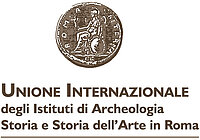MISSMO. Christian missions and societies in the Middle East: organizations, identities, heritage (19th-21st centuries)
- Section: Modern and contemporary periods
- Director: Philippe Bourmaud, researcher in delegation at the CNRS, French Institute of Anatolian Studies, Istanbul; Séverine Gabry-Thienpont, CREM-LESC UMR 7186 ; Marie Levant, post-doc researcher at LabEx EHNE (Sorbonne University); Norig Neveu, researcher at the French Institute for the Near East (IFPO); Karène Sanchez, lecturer, University of Leiden
- Réseau des EFE : in collaboration with the Institut français d’archéologie orientale
Presentation
The research programme MisSMO (Christian Missions and societies in the Middle East: Organizations, identity, heritage, 19th to 21st centuries) brings together twenty researchers.
The project objective is to place the missions within the cultural and social evolutions which the Middle East experienced, from Ottoman modernity until today. This involves the analysis of the missionary phenomenon at a regional level, not just at a national or local scale. While examining the evolution of the forms, the organization and the role of the missions, we will show how they have generated profound social, cultural and economic changes, not only for Christians but also for Muslims.
Research theme 1- Missions and power in place
Director: Karène Sanchez
Focussing on the Ottoman period (late 19th to early 20th century), this project looks at the implementation of charitable and health initiatives by the Catholic, Protestant and Orthodox missions. For the mandatory period, we will examine the relationships between missionaries and French or British authorities, in order to analyze the place of missions within the development of colonial systems and knowledge. We will study the divergent fates of missions within States which, from the 1950s, adopted different policies in this area. This will allow us to question the concept of ‘mission’ since the Ottoman period.
Research theme 2 - Missions and confessional identities
Director: Norig Neveu
The arrival of the missions in the Middle East led to the development of new churches not necessarily recognized by the authorities. In addition, the activity of the missionaries may have helped to revise the denominational barriers, also playing a role in the various processes of affirming denominational identities. Looking at the issue of confessional identities through the action of missionaries reveals the effects of confessionalization, without making it a mechanical consequence of institutional arrangements. These missions often had to negotiate their place in the face of the “historic” Eastern Churches, at the same time as remaining open to a dialogue with the Muslim populations. The missions can be understood as a space of contact between religions.
Research theme 3 - Missions and gender
Director: Séverine Gabry-Thienpont
The missions have played a major role in the conception of gender relations between individuals. In the 21st century female and male congregations reorganize the space of cities, villages, but also families, and obtain the status of key contacts or mediators. How important is gender as a socially and religiously normalized status in these exchanges? How do missions influence Christian and then, more broadly, Muslim religious practices?
Research theme 4 : Mission, heritage and knowledge
Directors : Philippe Bourmaud and Marie Levant
The missionary institutions of the Levant, at the crossroads between the "Western world" and "Eastern world" served as the basis, from the 19th century, of the development of knowledge about Christian-Eastern cultures and local societies. They contributed, to a great extent, to the development of sacred topographies, including the territories from the Middle East to the Holy Land. We will seek to understand how local populations, Christian, Jewish and Muslim, invest in these newly (re) created spaces for religious, political or tourist purposes.
More generally, this programme questions the evolution of the concept of "mission" from the Ottoman period. While congregations from the “South”, of Africa, Asia or Latin America appear in the Holy Land, it seems more and more possible to use the existence of the Christian missionary as a regional observatory of the evolutions of the globalized religious. To carry out these four research themes, the MisSMO team intends to put historical and ethnographic examples into perspective, ranging from Egypt to contemporary Turkey through Lebanon, Jordan, Palestine and the Holy Places, or even Iraq and Syria, based on the study of documents from Roman archives, missionary congregations and institutions, as well as field surveys.
Keywords
Christians of the East; Middle East; history; anthropology; 19th to 21st centuries; Holy land; heritage; gender studies; knowledge transfer; denominational identities; interdenominationalism; political powers.
Key figures
2017-2019:
- 9 scientific meetings, in Bologna, Paris and Rome
- 15 missions to the Middle East and Rome
- around twenty researchers involved
- a researcher in residence at the École française de Rome
Calendar of events
2017
- 18-22 June 2017 : "European projects about Modern History of Eastern Christianity" panel organized within the 1e congrès de la European Academy of Religion, FSCIRE, Bologna
- July 6, 2017, “Le phénomène missionnaire au prisme du genre dans le Moyen-Orient contemporain” (The missionary phenomenon through the lens of gender in the contemporary Middle East), panel organized within the 2e congrès du GIS Moyen-Orient et Mondes Musulmans, INALCO, Paris
- November 27-29, 2017, “In partibus fidelium. Missions du Levant et connaissance de l’Orient chrétien (XIXe-XXIe siècles)” (In partibus fidelium. Missions of the East and knowledge of the Christian East, 19th to 21st centuries), International Symposium, École française de Rome
2018
- July 20, 2018, panel Cultural diplomacy, aesthetics and missions in the Middle East, 19th-20th centuries organized by Séverine Gabry-Thienpont and Norig Neveu, WOCMES, Seville
- October 25, 2018: Round table “Protestants in Istanbul”, Cezayir Salonu, Istanbul, organized by Armand Aupias (in partnership with IFEA and OII)
- October 26-27, 2018, workshop Missionaries as Experts, Religious networks, knowledge of the field and public action, Istanbul, organized by Armand Aupiais, Aylin de Tapia and Philippe Bourmaud, IFAO / EFR, Istanbul
2019
- March 27-29 : “European cultural diplomacy and Arab Christians in Palestine. A connected history during the formative years of the Middle East (1918-1948)”, Leiden University, (in connection with the Crossroads research programme directed by K. Sanchez).
- June / September : Doctoral school “Renouveaux des sources et méthodes pour l’étude du phénomène missionnaire” (Renewal of sources and methods for the study of the missionary phenomenon) (2 parts), 15 doctoral students
- June 3-6, 2019, “Écrire l’histoire des missions orientales à partir des archives romaines. Centralisation, classification, conservation?” (Writing the history of the Eastern missions from the Roman archives. Centralization, classification, conservation?)
- September 8-12, 2019, “Méthodes ethnographiques et reportage scientifique” (Ethnographic methods and scientific reporting), IFAO, Cairo
2020
- International symposium closing the programme, École française de Rome
Expected results
A carnet de recherche "hypothèses" already exists and is fed by the network of researchers linked to the programme.
A series of scientific meetings, photographic exhibitions, as well as campaigns to assess archives and ethnographic surveys carried out both in the Middle East and in Rome, will make it possible to suggest several case studies devoted to the mission in the Middle East. Thus, as part of this programme, four collective publications are being prepared, to which will be added a collective work bringing together the contributions of the final conference.
- "Missions in the Levant and knowledge of the Christian Orient (19th to 20th centuries) - Arabization", Social Sciences and Mission, coord: Philippe Bourmaud and Karène Sanchez, autumn 2019.
- "Le phénomène missionnaire au prisme du genre dans le Moyen-Orient contemporain” (The missionary phenomenon through the lens of gender in the contemporary Middle East), Social Sciences and Mission, coord: Séverine Gabry and Norig Neveu, autumn 2020.
- In partibus fidelium. Missions du Levant et connaissance de l’Orient chrétien (XIXe-XXIe siècles) (In partibus fidelium. Missions of the Levant and knowledge of the Christian Orient 19th to 21st centuries) EFR publications, coord: Vittorio Berti, Séverine Gabry, Marie Levant, Norig Neveu, spring 2020.
- "Missionaries as Experts, Religious networks, knowledge of the field and public action", coord: Philippe Bourmaud and Aylin de Tapia
A final conference and publication (2020-2021) will take stock of the research and work carried out.
The programme includes a doctoral training component to encourage the development of research on Eastern Christianity from European and Middle Eastern sources. In particular, a doctoral school is planned for 2019.
Finally, our ambition is to structure a team and solid international collaborations in order to continue this work over a longer term, within the framework of an ANR or ERC programme.
Partners
Institutional partners
- Networks of Écoles françaises à l’étranger : École française de Rome and Institut français d’archéologie orientale
- Fondazione per le scienze religiose Giovanni XXIII
- Institut Français d’Études Anatoliennes
- Institut français du Proche-Orient
- Université de Leyde
Partner programmes
- 2015-2018 : Engaging Europe in the Arab World: European missionaries and humanitarianism in the Middle East (1850-1970), University of Leiden, IISMM and IEG of Mainz, funded by the NWO (Dutch National Agency for Scientific Research) supported by Karene Sanchez.
- 2015-2018 ANR Lajeh, temps des conflits, temps des migrations (ANR Lajeh, time of conflicts, time of migrations) led by Kamel Doraï, Ifpo
- 2017-2021: Normes et pratiques du religieux entre Orient et Occident (IXe-XIXe siècles) (Norms and practices of religion between East and West (9th-19th centuries) co-directed by Camille and Laurent Rouxpetel Tatarenko, as part of the five-year programme of the École française de Rome, École française d’Athènes and the Centre de recherche français à Jérusalem.
- 2017-201- 8: PI Van Morsel project, NWO, supported by Karène Sanchez, “Between the Holy Land and the World. A connected history of Christian communities in the Near East via the unpublished photographic collections (1900-1948)”
- 2019-2023: PI VIDI project, NWO (The Netherlands Organization for Scientific Research), supported by Karène Sanchez, “European cultural diplomacy and Arab Christians in Palestine. A connected history during the formative years of the Middle East (1918-1948)”
Contacts
- Philippe Bourmaud, IFEA : philippe.bourmaud(at)univ-lyon3.fr
- Séverine Gabry-Thienpont, IFAO : sevgabry(at)gmail.com
- Luca Ferracci, FSCIRE : luca.ferracci(at)hotmail.it
- Marie Levant, LabEx EHNE : marielevant(at)yahoo.fr
- Norig Neveu, IFPO : norigneveu(at)hotmail.fr
- Karène Sanchez, Université de Leyde : K.Sanchez(at)hum.leidenuniv.nl




